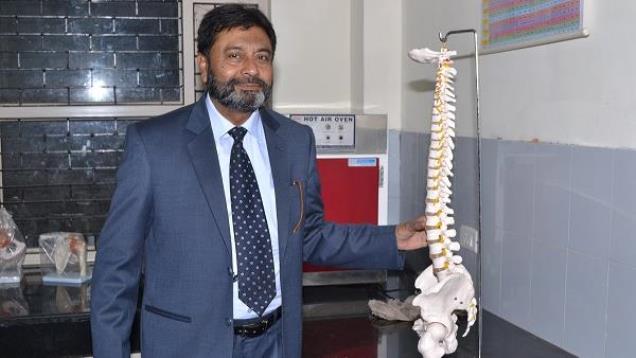NEW DELHI :
The National Unani awards were presented on the first day of the two day conference
The National Conference on Unani Medicine kicked off on Monday with much fanfare in the presence of a galaxy of dignitaries.
“Unani Medicine can offer the right solution for many health challenges we are facing due to lack of treatment of many diseases and paucity of resources”, said Dr. Najma Heptulla, Governor of Manipur, inaugurating the two-day conference organized by the Central Council for Research in Unani Medicine (CCRUM). It is a part of the 3rd Unani Day celebrations. Dr. Heptulla urged the Unani fraternity to progress and evolve with the changing times, adapt to new techniques of health research and contribute new approaches to health management. She said that Manipur has the treasure of over 500 medicinal plants and invited scientists to visit the state for research.
Addressing the conference themed on ‘Unani Medicine for Public Health’, Minister of State (IC) for AYUSH, Shripad Yesso Naik enlightened the audience on concrete steps taken by the Ministry of AYUSH to promote Unani Medicine.
The Lifetime Achievement Awards were conferred on Prof. Naeem Ahmad Khan, Aligarh Muslim University, Aligarh and Prof. M A Jafri, Jamia Hamdard, New Delhi for Best Academician and Best Researcher in Unani Medicine respectively
“Our efforts are focused to tap the real potential of AYUSH systems in imparting preventive, promotive and holistic healthcare to the people,” he said. Paying tributes to Hakim Ajmal Khan, whose birth anniversary is celebrated as Unani Day on 11thFebruary every year, he described him as a versatile genius.
Highlighting the strengths of Unani Medicine and other AYUSH systems in his address, Union Minister for Minority Affairs Mukhtar Abbas Naqvi said that the AYUSH systems are golden key to health and wellbeing. India is the strongest hub of Traditional Medicine which is one of the reasons medical tourism is flourishing in the country. He stressed on Integration of Unani Medicine in Mainstream Healthcare in line with the government policies and initiatives for mainstreaming of AYUSH in national healthcare.
On this occasion, AYUSH Awards for Unani Medicine were conferred on various Unani scientists and experts in recognition of their contributions for research, teaching and practice of Unani Medicine.
The Best Research Paper Awards were presented to Dr. Arshiya Sultana, Associate Professor, National Institute of Unani Medicine, Bangalore for Clinical Research and Dr. Noman Anwar, Research Officer (Unani), Regional Research Institute of Unani Medicine, Chennai for Drug Research in Unani Medicine. The Young Scientist Awards were conferred on Dr. Jamal Akhtar, Research Officer (Unani) Scientist – III, CCRUM for Clinical Research and Dr. Nasreen Jahan, Associate Professor, National Institute of Unani Medicine, Bangalore for Drug Research in Unani Medicine.
The Best Teacher Awards were presented to Prof. Tanzeel Ahmad, Aligarh Muslim University, Aligarh for Clinical Research, Prof. Mohd Aslam, Jamia Hamdard, New Delhi for Drug Research and Prof. Khalid Zaman Khan, Aligarh Muslim University, Aligarh for Literary Research in Unani Medicine. The Lifetime Achievement Awards were conferred on Prof. Naeem Ahmad Khan, Aligarh Muslim University, Aligarh and Prof. M A Jafri, Jamia Hamdard, New Delhi for Best Academician and Best Researcher in Unani Medicine respectively.
source: http://www.medibulletin.com / MediBulletin / Home> Alt Medicene / by MediBulletin Bureau / February 11th, 2019









